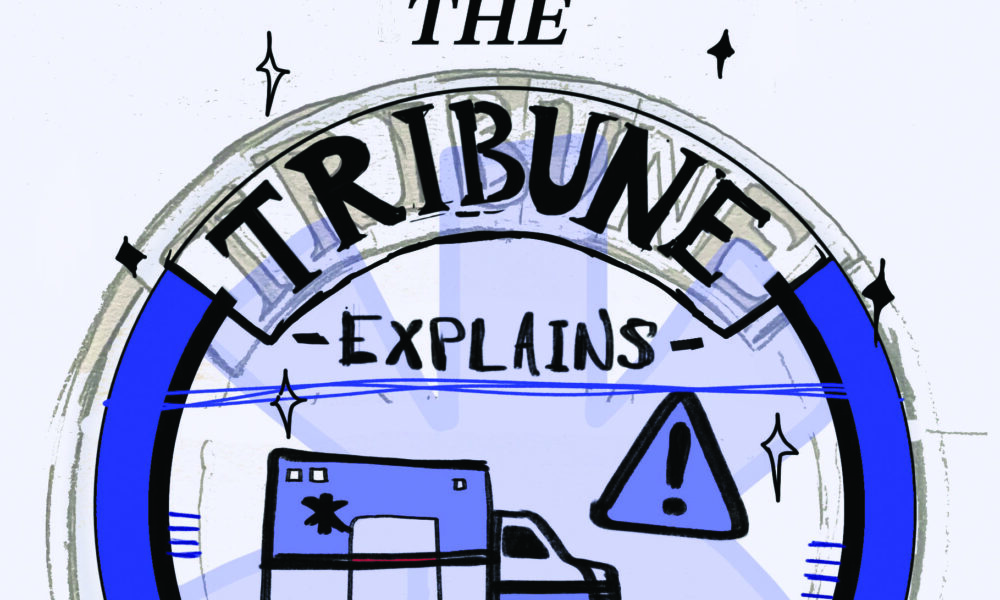Various university and student-run safety services exist on campus, from the Campus Public Safety department to McGill’s Student Emergency Response Team (MSERT), WalkSafe, and DriveSafe. The McGill Tribune looked into these services and how McGill students can use or join them.
What emergency and safety services does McGill offer?
McGill’s Facilities Management and Ancillary Services (FMAS) offers 24/7 security services for students, faculty, staff, and visitors through its Campus Public Safety department. Students and staff members can also benefit from safety escorts at both the downtown and Macdonald campuses.
“Agents patrol the campuses, manage access, transport students and staff with disabilities[,] as well as respond to incidents and emergencies,” McGill media relations officer Frédérique Mazerolle wrote in an email to the Tribune. “In addition, we develop and implement standards and programs for emergency management at McGill, including the University Emergency Response Plan. We operate the Emergency Alert System and the University Security Operations Centre, and work with units across campus for a coordinated response to incidents.”
What independent emergency and safety services do student organizations offer?
In addition to university-run services, there are also student-run emergency services on-campus, including MSERT, DriveSafe, and WalkSafe.
MSERT is a service offered by a team of more than 75 student volunteer first responders certified by the Canadian Red Cross with the mission of providing free access to first aid to both students and Montrealers.
The team offers first aid services from 6 p.m. to 6 a.m. to all McGill residences except for Solin Hall, while also helping ensure student safety during various events such as Frosh. They partner with the Canadian Red Cross to educate the public on first aid through courses and certifications.
DriveSafe is also run by student volunteers and the Students’ Society of McGill University (SSMU) and offers a safe means of transportation on the island for McGill students between 11 p.m. and 3 a.m. from Thursday to Saturday. In Fall 2022, Drivesafe managed to drive over 636 people home safely with 100 cars on shift.
Walksafe, also run by SSMU, is a similar service that, instead of a car, offers McGill students and Montrealers the opportunity to have a trustworthy volunteer walk them home. Volunteers wear red jackets and accompany the callers to their destination from 9 p.m. to 12 a.m. from Sunday to Thursday and 9 p.m. to 3 p.m. from Friday to Saturday.
How can McGill students access these services?
For medical emergencies requiring ambulances—which are often the fastest and safest way to get to the hospital—one must call 911. Although there is a fee for ambulance services, some may qualify for free service or insurance reimbursement. After calling 911, one should call McGill’s Security Services, who will coordinate with emergency responders. For internal issues such as water leaks or strange odours, contact Security Services. The Security Services’ downtown phone number is (514) 398-3000. The Macdonald Campus Security Services’ phone number is (514) 398-7777.
The McGill Student Emergency Response Team can be reached at (514) 398-5216.
To access WalkSafe, students can call (514) 398-2498 or make a request on WalkSafe’s website. Reservations are not allowed; services are offered on a first-come, first-serve basis.
DriveSafe can be reached at (514) 398-8040 or by filling out an online form. Like WalkSafe, they do not accept reservations.
How can students volunteer with these services?
Those interested in volunteering with MSERT can apply at the beginning of every fall semester. Students do not need to have a first aid certification to apply, as MSERT trains its new members.
Those interested in volunteering with WalkSafe can contribute to the service by becoming walkers or dispatchers, who are responsible for assigning volunteers where needed.
DriveSafe volunteers can either become drivers; “shotguns,” who ride next to the driver and contribute by giving directions, taking care of passengers, and corresponding with dispatchers; or dispatchers, who take calls and assign users to available cars.









